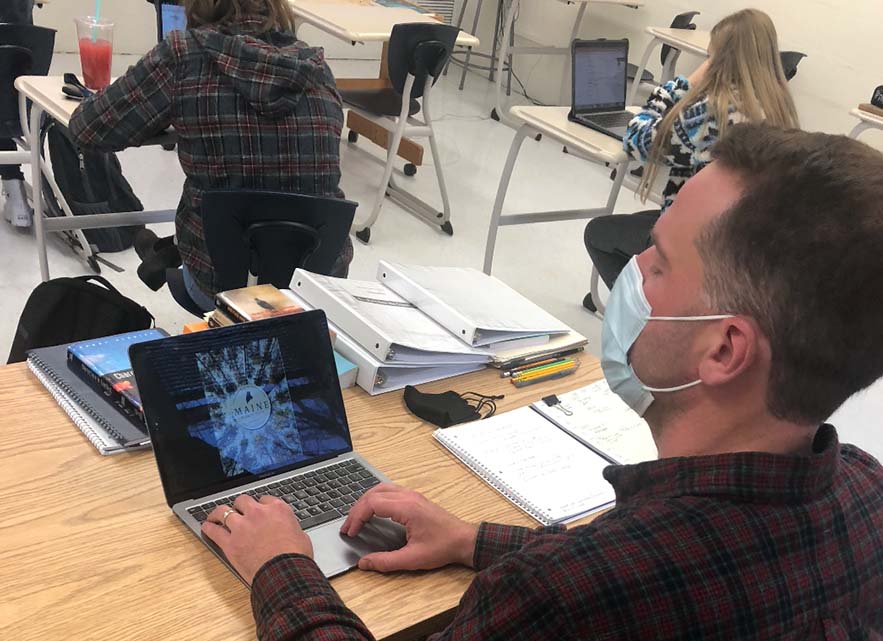
Hall-Dale High School English Teacher Inspires Student Climate Action
Hall-Dale High School English teacher Brandon Terrill’s climate crisis lightbulb moment occurred while mowing his lawn and listening to a podcast. Terrill’s lawn mower stalled as he realized the urgency of informing young people about our current climate situation. In a new Climate Crisis unit, Terrill is teaching students in his College Composition course about global and local climate threats. The final assignment? Essays describing specific Maine Won’t Wait strategies - and how they can motivate people to take action.
How long have you been an English teacher?
I have been teaching high school English for 14 years, all of them at Hall-Dale High School in Farmingdale.
How did the Climate Crisis Unit begin?
This is the first time that I have taught a unit specifically focused on the Climate Crisis. This past August, I was mowing the lawn and listening to an episode of The Daily, a podcast produced by the New York Times. The title of the episode was “A Code Red for Humanity” and it outlined the IPCC report that had just been released. As it discussed the likelihood of our planet surpassing 1.5 degrees Celsius of warming and the catastrophic danger of missing a window of opportunity we have over the next 10-20 years to drastically reduce our greenhouse gas emissions, I let my (gas-powered, unfortunately) lawn mower stall out as I looked out over my back yard. I thought about the upcoming school year, and I couldn’t think of a more important topic to craft a unit around. If the next generation is going to clean up the mess the current generations made in our atmosphere, it’s going to have to start with educating our young people on the situation we are in and what we can do about it.
Tell us about the final assignment which is based upon the Maine Won’t Wait Plan.
Students were allowed to choose among four topics for their final papers.I chose these topics because they each have a direct connection to a special cutout section of the “Maine Won’t Wait” report. Each student will write their own essay answering three guiding questions: how the process would work, why it's important, and how they can motivate people to do it.
- The transition to electric vehicles in Maine
- The modernization of Maine’s buildings, specifically writing a modernization plan for Hall-Dale High School
- The transition from home heating oil to heat pumps and biofuels
- Maine’s offshore wind opportunity in the Gulf of Maine
What inspires you most about discussing the MWW plan and climate crisis with your students?
Near the end of Greta Thunberg’s TED Talk, she gives a hypothetical: it’s the year 2075. She is an old woman with kids and grandkids. Her grandkids say to her, “tell me about the people back in 2018. Why didn’t they act when they knew what they had to do?” Thinking about our next generation of children and their future children and what kind of planet they will have is ultimately why this topic is so important for public education. We have to act and act urgently. I am inspired by my students, who will be the workforce that must build offshore wind farms, modernize our buildings, and transition to electric vehicles and heat pumps.